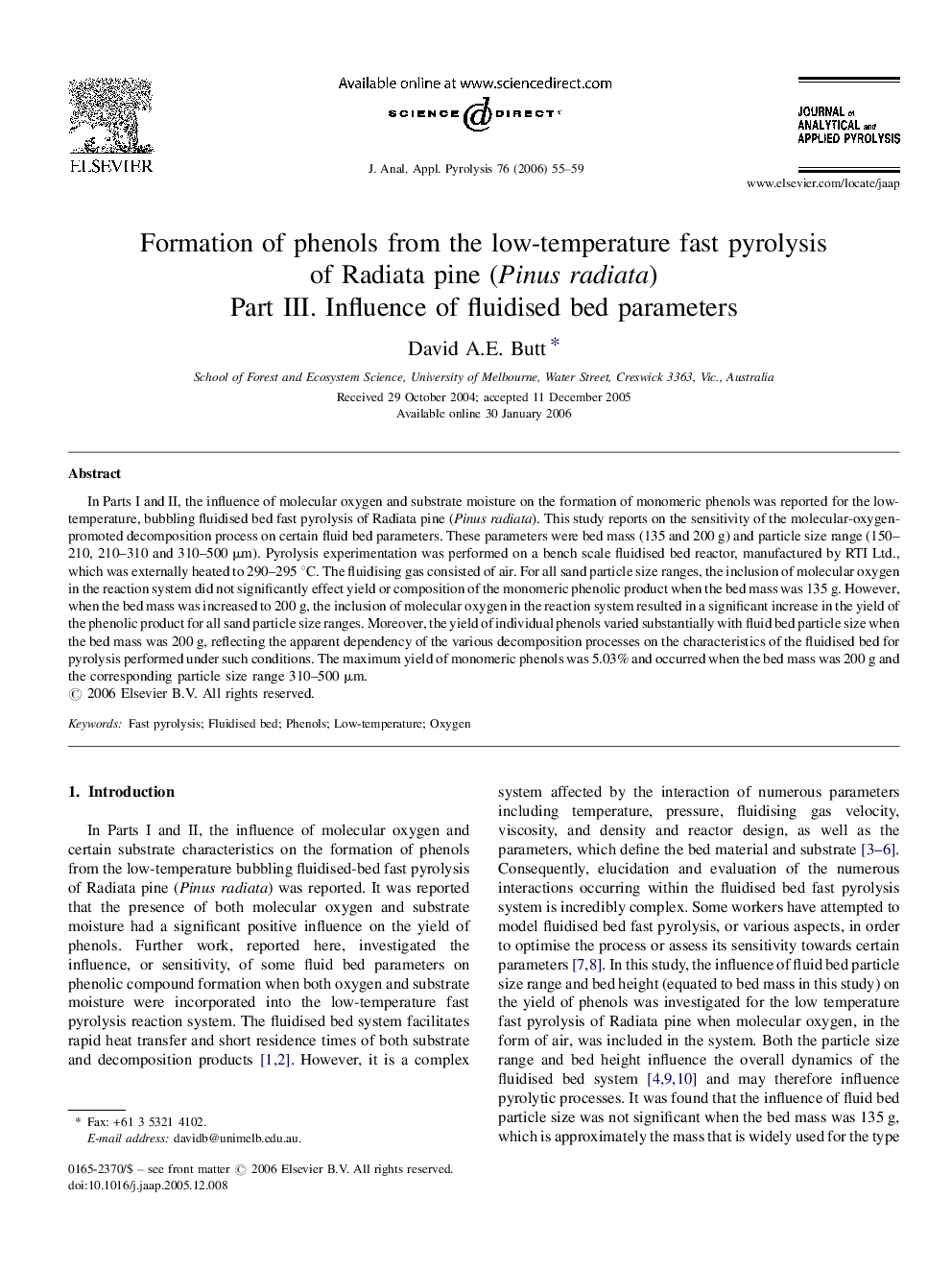| Article ID | Journal | Published Year | Pages | File Type |
|---|---|---|---|---|
| 1198201 | Journal of Analytical and Applied Pyrolysis | 2006 | 5 Pages |
Abstract
In Parts I and II, the influence of molecular oxygen and substrate moisture on the formation of monomeric phenols was reported for the low-temperature, bubbling fluidised bed fast pyrolysis of Radiata pine (Pinus radiata). This study reports on the sensitivity of the molecular-oxygen-promoted decomposition process on certain fluid bed parameters. These parameters were bed mass (135 and 200 g) and particle size range (150-210, 210-310 and 310-500 μm). Pyrolysis experimentation was performed on a bench scale fluidised bed reactor, manufactured by RTI Ltd., which was externally heated to 290-295 °C. The fluidising gas consisted of air. For all sand particle size ranges, the inclusion of molecular oxygen in the reaction system did not significantly effect yield or composition of the monomeric phenolic product when the bed mass was 135 g. However, when the bed mass was increased to 200 g, the inclusion of molecular oxygen in the reaction system resulted in a significant increase in the yield of the phenolic product for all sand particle size ranges. Moreover, the yield of individual phenols varied substantially with fluid bed particle size when the bed mass was 200 g, reflecting the apparent dependency of the various decomposition processes on the characteristics of the fluidised bed for pyrolysis performed under such conditions. The maximum yield of monomeric phenols was 5.03% and occurred when the bed mass was 200 g and the corresponding particle size range 310-500 μm.
Related Topics
Physical Sciences and Engineering
Chemistry
Analytical Chemistry
Authors
David A.E. Butt,
